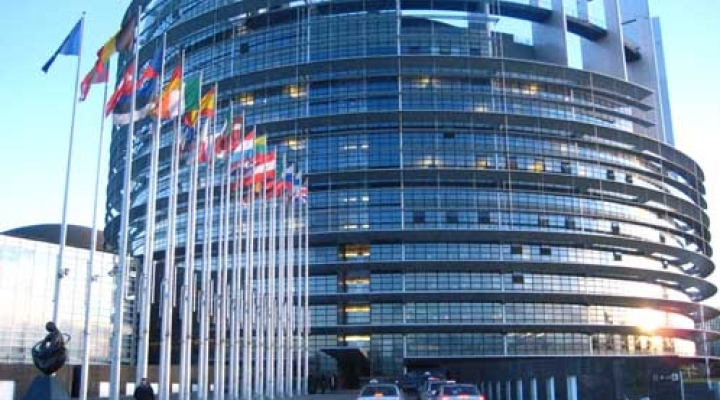Stronger European presence in the case of cooperative societies
DAHR’s MEP Csaba Sógor was the shadow-rapporteur on behalf of the EPP for the own-initiative report on the Statute for a European Cooperative Society with regard to the involvement of employees.
The report was approved with a vast majority of votes during the European Parliament’s plenary session of 13 March. The main rapporteur, Swedish green MEP Sven GIEGOLD urged the reform of the statute of European Cooperative Societies because its current complicated form negatively affects cross-border possibilities and needs. The sector consists of over 160 million companies in the EU, it has 120 million members and gives jobs to over 5.4 million workers; therefore it represents a great potential for employment and sustainable growth. Speaking on behalf of the Committee on Employment and Social Affairs of the EP, the rapporteur said declared that the Committee wasis unhappy with the EU’s steps in this issuethe area and consideredrs that support forof social solidarity in the economy is crucial in this period of multiples crises, thus he urged demanded the member states to provide additionalmore support from the member states.
The commissioner in charge of education, culture and multilingualism Androulla VASSILIOU participated at the debate before the vote and saluted the report. She reminded that this year is the International Year of Cooperatives, so the EC plans to organize two conferences on the subject: one in April in Brussels and one in September in Cyprus as part of the upcoming presidency’s programme.
Csaba Sógor assured his colleagues about the support of his political group. The Hungarian MEP from Transylvania warned that the statute of the cooperatives and the credibility of their activity has been compromised in Central and Eastern Europe and that although the Commission’s 2010 report is a useful survey, certain chapters – including the one on Romania – are somewhat imprecise. Csaba Sógor called for a stronger European presence through the open method of coordination. Here follows his speech:
“Dear colleagues!
I warmly salute my colleague’s, Mr. GIEGOLD’s report about the extension of the statute for a European cooperative society with regard to the involvement of employees. I consider that its EU level extension is very important especially because in my country, Romania, as well as in other countries in the region, the cooperatives’ statutes and the credibility of their activities has been compromised during the communist period. Moreover, the Commission’s report from 5 October 2010 isn’t promising, some of its chapters are imprecise.
Consequently, it would be desirable and useful to introduce a higher degree of European presence in the system of cooperatives through the open method of coordination. I am sincerely sorry that this report is only an own initiative.”
Gender equality, equality between men and women in the EU and the participation of women in political decision-making was another important subject of the March plenary session.
In his speech on the subject, Csaba Sógor presented to his European colleagues DAHR’s initiatives to support families. Here follows the MEP’s speech from Tuesday, 13 March:
“Seeing the demographic trends in Europe, I am convinced that we need to pay special attention to measures that support families. We need to provide additional help during the uncertain times of the economic crisis. One way to achieve this is through the creation of flexible work conditions for women. Women make greater sacrifices than men – even regarding their careers – at the moment of starting a family. Some member states have an extended system of family support, others, like Romania, are only at the beginning of this path. This is why we urged that the Romanian government take widespread action in this field. We believe that we can only build a successful Europe if we counteract the ageing of the population with the increase of the number of births, not through immigration.”
The EP discussed on Wednesday, 14 March the enlargement reports for Bosnia and Herzegovina in a key debate. Based on the experiences from the time of the accession processes and the period that has passed since then, DAHR’s MEP Csaba Sógor called attention to the fact that new member states are not held accountable anymore for observing the Copenhagen Criteria, especially the rights of national minorities. The Hungarian MEP from Transylvania regretted that the EU does not follow the implementation of these criteria after the accession of a country.
Here follows Csaba Sógor’s speech:
“All candidate countries need to comply with the Copenhagen Criteria, including the protection of minority rights. We need to pay special attention to this aspect in the accession process of countries from the Western Balkans because we all know the ethnic situation in the region and remember the recent past. I am sorry to say that the completion of the accession process for the countries of the region should be allowed to happen only after assuring the lasting settlement of interethnic issues in a way that satisfies all nations concerned.
I am sorry because the population of the region needs a swift accession process and tools that help the resolution of problematic issues. Experiences show that our institutions do not deal with minority issues in EU member states: the Copenhagen Criteria are only binding until the moment of accession.











